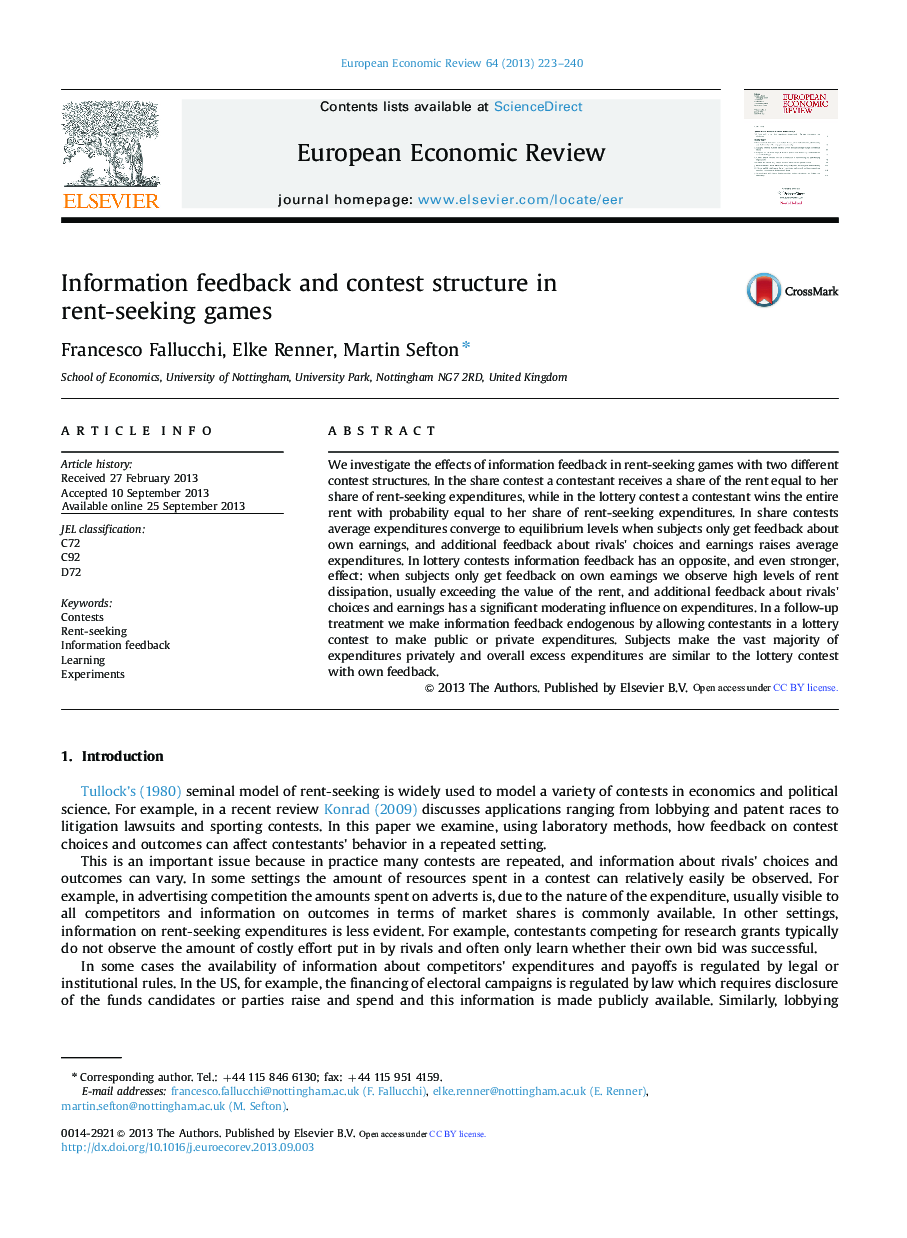| Article ID | Journal | Published Year | Pages | File Type |
|---|---|---|---|---|
| 5066926 | European Economic Review | 2013 | 18 Pages |
â¢We show that rent-seeking expenditures are sensitive to information feedback.â¢We show that the effect of feedback depends on contest structure.â¢Feedback about rivals' choices/earnings reduces rent-seeking in Tullock contests.â¢We observe the opposite effect in a deterministic version of the Tullock contest.
We investigate the effects of information feedback in rent-seeking games with two different contest structures. In the share contest a contestant receives a share of the rent equal to her share of rent-seeking expenditures, while in the lottery contest a contestant wins the entire rent with probability equal to her share of rent-seeking expenditures. In share contests average expenditures converge to equilibrium levels when subjects only get feedback about own earnings, and additional feedback about rivals' choices and earnings raises average expenditures. In lottery contests information feedback has an opposite, and even stronger, effect: when subjects only get feedback on own earnings we observe high levels of rent dissipation, usually exceeding the value of the rent, and additional feedback about rivals' choices and earnings has a significant moderating influence on expenditures. In a follow-up treatment we make information feedback endogenous by allowing contestants in a lottery contest to make public or private expenditures. Subjects make the vast majority of expenditures privately and overall excess expenditures are similar to the lottery contest with own feedback.
